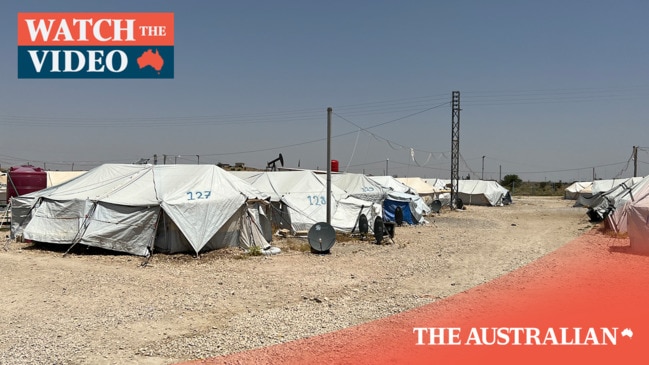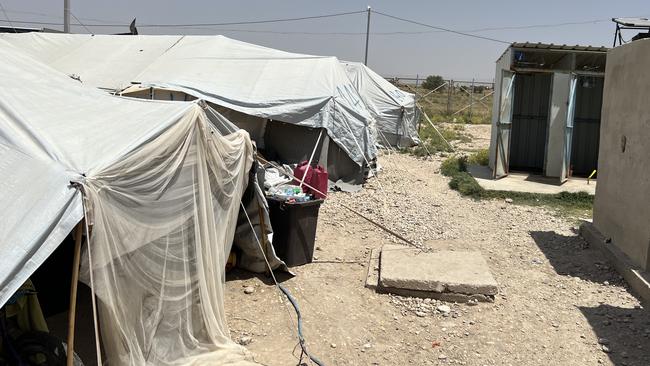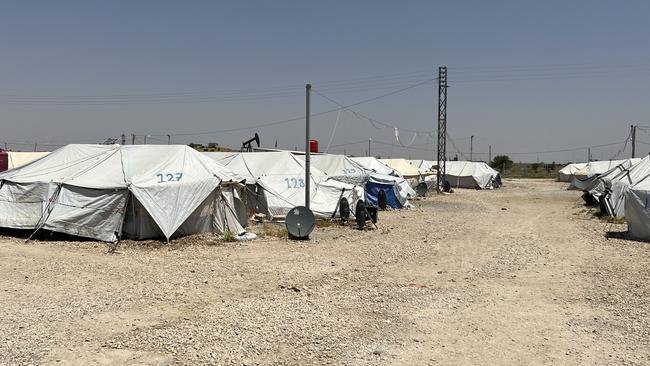Too dangerous? Save the Children chief proves Syria extraction trip can be done
For years, the previous government said it was too dangerous to extract women and children. Save the Children’s Australian chief Mat Tinkler set out to dismiss that claim.

For years, the Morrison government said it was too dangerous to travel to Syria to extract the women and children held indefinitely in prison camps for Islamic State families in the Syrian desert.
So in June, in a trip organised before the May election, Save the Children’s Australian chief Mat Tinkler made the journey himself, to prove it could be done.
“I wanted to see for myself what conditions were like here on the ground,’’ Mr Tinkler said from the town of Derik, also known as al-Malikiyah, in northeast Syria.

“We’ve been communicating with these women and children and their families back in Australia for over three years now. We’ve been talking to our staff who are going in and out of the camps every day. But there’s nothing like understanding something to see it for yourself and I really wanted do that. And I’m just so glad I’ve been able to get in and see the Australian women and the innocent children here in the camps.’’
Mr Tinkler caught a commercial flight into Erbil, the capital of Kurdish-controlled northern Iraq, then made the three-hour drive north through Dohuk to the border crossing at the Iraqi village of Faysh Khabur on the Tigris River.

He went through passport control, then boarded a mini bus that traversed a pontoon bridge across the river, arriving into the checkpoint at the Syrian village of Semalka. The bus stopped before it crossed the river for a roll call of names, and his passport was handed back on the other side.
From Semalka, it was barely 20 minutes’ drive to al-Roj, the detention camp housing about 2000 women and children linked to Islamic State families, including about 60 Australians.
The road through the Syrian oilfields was rough and heavily potholed, and sheep and goats had right of way. But the security situation was calm. The camp lies outside the village of Xana Sere, in a remote part of the country close to the Iraqi border in a white desert landscape dotted with derricks extracting oil.

The drive to al-Hol camp, in the village of the same name outside the restive city of Hasakah about three hours away, was a riskier proposition due to the presence of Islamic State sleeper cells, but has been completed dozens of times by Australian journalists, and foreign officials from numerous European and Western democracies, as well as intelligence officers.
“I wanted to prove number one that it’s doable to get into these camps, we have proven that today,’’ Mr Tinkler said.
He said the fact a charity worker could make the journey “relatively easily” showed there were no insurmountable security concerns preventing the Australian government from extricating its citizens.
“The most challenging part of the trip was witnessing the distress and suffering of the innocent Australian children and their mothers who have been marooned in these camps for years,” he said.

“I strongly urge the Labor government to uphold the rights of these innocent children, and commit to repatriating them and their mothers immediately.”




To join the conversation, please log in. Don't have an account? Register
Join the conversation, you are commenting as Logout